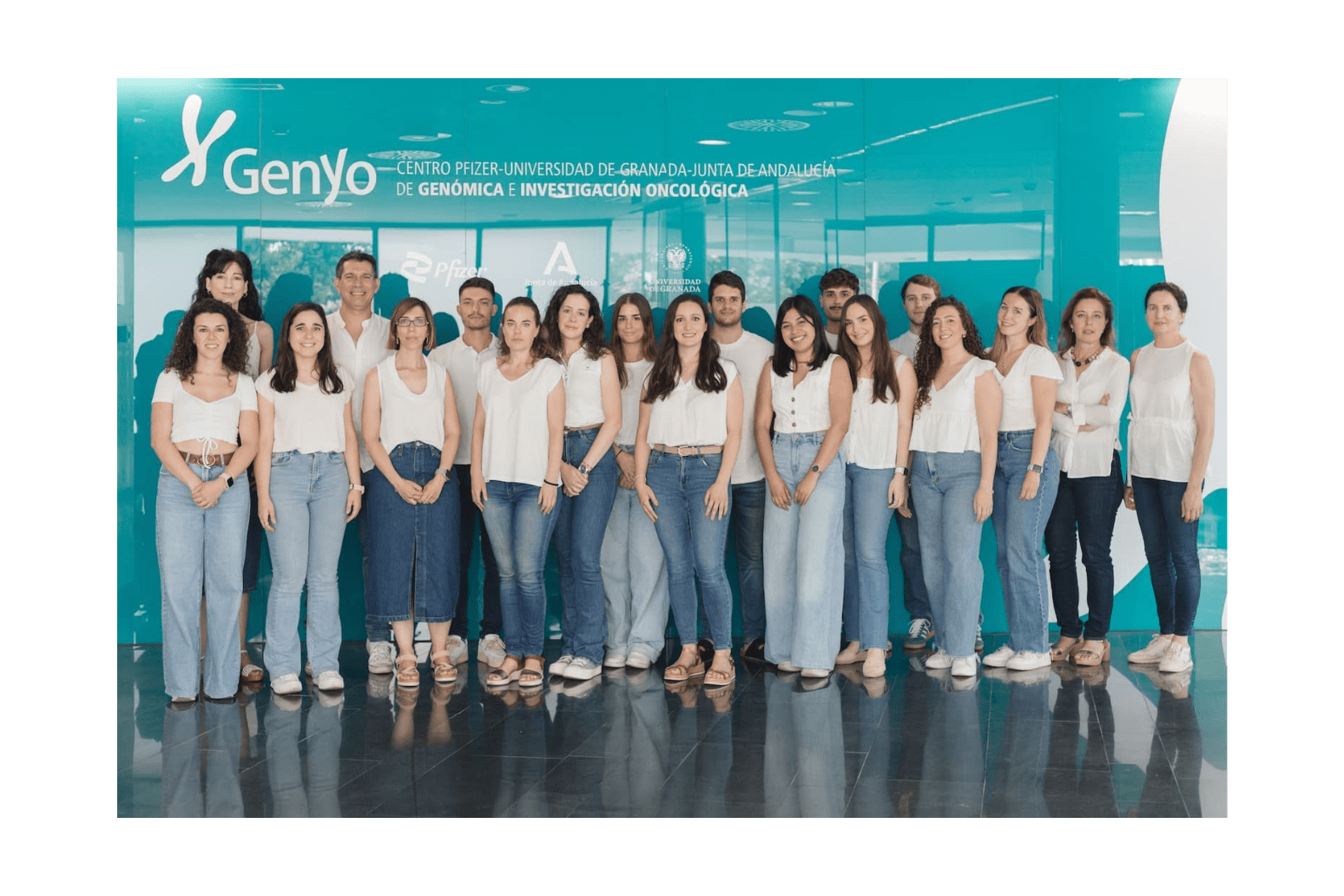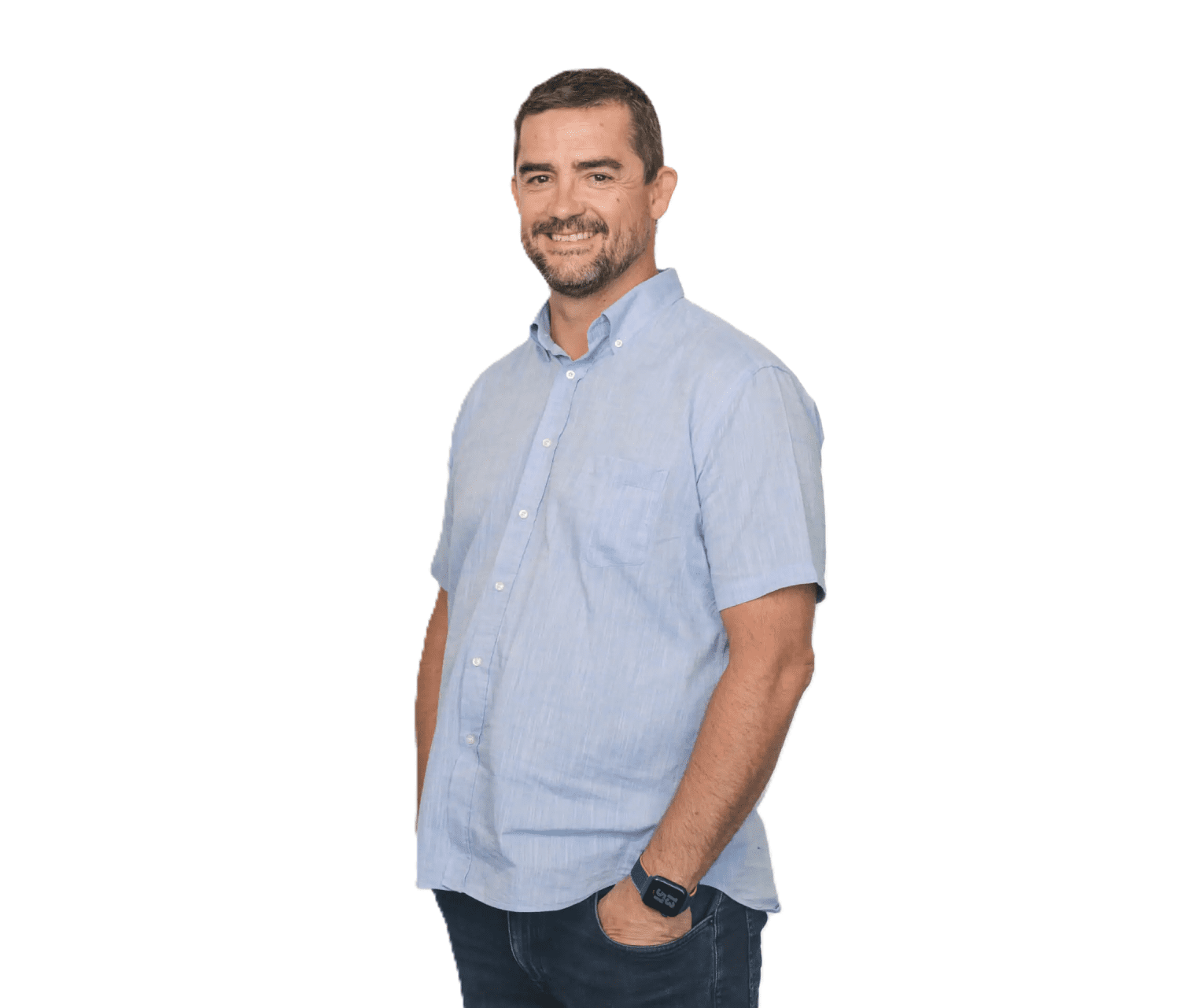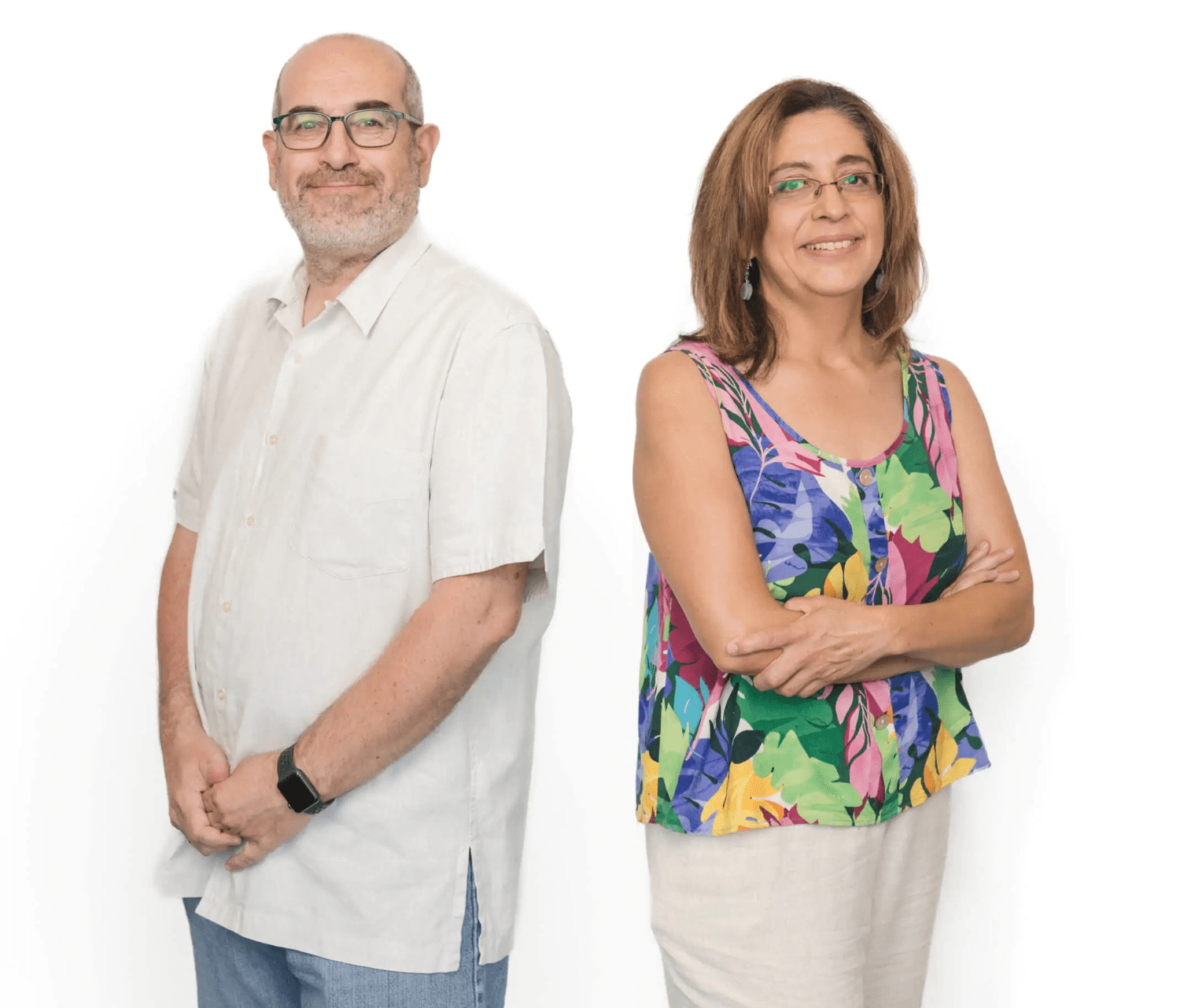No se ha encontrado investigadores para este término.
Nuestro grupo surgió gracias a nuestros inicios en 2008 donde establecimos una fuerte conexión entre lagunas clínicas (tumor urológico) y biomarcadores moleculares. Nos dimos cuenta de que las estrategias clínicas actuales en tumores como los de próstata o riñón carecían de paneles moleculares robustos. Además, comprendimos la gran heterogeneidad tumoral que existe en estos pacientes y donde las estrategias ómicas podrían proporcionar una respuesta clínica directa. A lo largo de los años, nuestros descubrimientos nos han llevado a comprender el papel de cada marcador molecular en el desarrollo del cáncer y a descifrar las intrincadas redes que remodelan la estructura genética del cáncer en diferentes tejidos y células. También hemos explorado cómo los factores ambientales contribuyen a la formación de tumores, considerando el exposoma y su impacto en los reguladores epigenéticos dentro de esta compleja red metabólica. Centramos nuestras estrategias en la búsqueda de marcadores no invasivos que puedan mejorar la estratificación de pacientes utilizando diferentes metodologías de integración ómica.
Somos un grupo multidisciplinar formado por médicos clínicos, farmacéuticos clínicos, biólogos e informáticos. La mayor parte del grupo está adscrito al Departamento de Bioquímica y Biología Molecular III e Inmunología de la Universidad de Granada, Servicio de Urología y Farmacia Hospitalaria del Hospital Universitario Virgen de las Nieves. Gracias a la actividad multidisciplinar, actualmente contamos con aproximadamente 1.000 muestras de cáncer de próstata (biopsias de tejidos (frescos y FFPE), sangre y/u orina). Además de las muestras biológicas mencionadas, también disponemos de un registro longitudinal de datos personales, clínicos y ambientales.
Además, formamos parte del consorcio internacional de cáncer de próstata (PRACTICAL), lo que facilita la obtención de muestras y las conexiones con todos los grupos internacionales centrados en el estudio del cáncer de próstata. Actualmente, tenemos una fuerte colaboración con la Universidad de St. George’s del Reino Unido como colaboradores activos del equipo de Investigación en Cáncer de Próstata con sede en St. George’s, Universidad de Londres a cargo de Clara Cieza y Ferran Valderrama (Universidad de St. George’s, Londres, Reino Unido), donde actualmente estamos desarrollando experimentos en esferoides y organoides en cáncer de próstata (derivados de pacientes prostáticos de nuestra colección).

¿En qué se centra nuestra línea de investigación?
- Integración de datos ómicos para la búsqueda de biomarcadores moleculares asociados a cánceres urológicos:
El estudio de tumores urológicos incluye aquellos como el cáncer de próstata o vejiga; pero también, otros menos frecuentes pero más agresivos como el cáncer de riñón. Combinamos las principales técnicas ómicas para la búsqueda de biomarcadores en tumores sólidos (en tejido parafinado y mediante análisis Single Cell en biopsias frescas) y biopsia líquida. Utilizando la secuenciación de nueva generación (NGS), podemos alcanzar una visión completa del panorama genético de cada paciente, desenmascarando biomarcadores que permitan estratificar de forma precoz y precisa a los pacientes en función de su futura agresividad, pronóstico o respuesta al tratamiento. Así, mediante técnicas no invasivas la detección de estos biomarcadores supondrá un cambio en el enfoque del tratamiento hacia una medicina personalizada y de precisión.
- Papel de las variantes genéticas en las enzimas metabólicas xenobióticas en el cáncer. Interacción gen-ambiente mediante el análisis del exposoma:
La combinación de exposiciones ambientales (exposoma) aporta un nuevo enfoque a la etiología del cáncer. Los efectos sobre la salud de estas exposiciones dependen de factores genéticos como los genes que codifican las enzimas metabolizadoras de xenobióticos (XME) y las enzimas de defensa antioxidante. Sin embargo, las vías metabólicas en las que participan estas enzimas no están bien estudiadas en el cáncer y no se ha establecido una relación clara entre las diferentes isoformas con la agresividad del cáncer. Actualmente, el grupo está centrado en la evaluación de diferentes factores genéticos en tumores urológicos y su asociación con el exposoma mediante la integración de cuestionarios y biomonitorización. Esta combinación puede contribuir a la detección de biomarcadores de exposición útiles para la prevención y el tratamiento personalizados basados en el entorno de cada paciente.
- Identificación de marcadores genéticos asociados a fármacos utilizados en cáncer y validación funcional
Aproximadamente -15-20 de todas las pacientes tratadas con hormonas dejan de responder al tratamiento y en unos 3 años progresan a resistentes al tratamiento (CPRC). Por ello, nuestro grupo pretende identificar marcadores genéticos que expliquen dicha falta de respuesta a los fármacos (Goserelina, Leuprorelina,Triptorelina, Histrelina, Abiraterona, Enzalutamida, Apalutamida y Darolutamida). Además, desarrollaremos la validación funcional in vitro de las mismas para intentar incluir estas variantes como biomarcadores en la práctica clínica diaria.
Biografía relacionada de la línea de investigación del grupo:
Entidad financiadora: Proyectos Plan Operativo FEDER Andalucía 2021-2027.
Periodo de ejecución: 01/01/2024- 31/12/2026.
Entidad concedente: TrasMisiones 2023 – PMPTA, ISCIII.
Periodo de ejecución: 01/01/2024-31/12/2025.
Entidad concedente: Ayudas del plan propio UGR 2022 (OTRI).
Periodo de ejecución: 01/06/2023-31/07/2025
Entidad concedente: Proyectos En Salud – Junta De Andalucía.
Periodo de ejecución: 18/11/2022-18/11/2025.



















